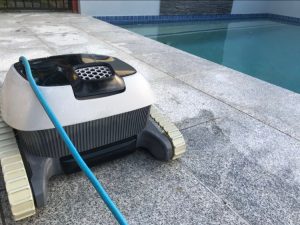One of the biggest issues people have with swimming pools is keeping the pH level at a manageable range. No one wants to swim in a pool that is too acidic or alkaline. In this blog, we are going to talk about how to lower pH in a pool without chemicals.
First you must understand a few important things about pH levels.
What Causes a High pH in a Swimming Pool?
There are a few things that can cause a high pH in a swimming pool. One is using too much alkaline chemicals, such as chlorine or bromine. Another is not using enough acid to offset the alkaline chemicals. If the pool water is not circulating properly, the pH can rise. In addition to these items, a sudden increase in the water’s temperature can cause the pH to rise. For instance, if the water in your pool is often exposed to sunlight, an unanticipated heat wave could result in the pH rising over usual.
3 Ways to Lower the pH of your pool naturally
These three options are a great way to reduce the pH levels of your pool without using any chemicals. Sure, some might not be as quick as throwing in chemicals, but will have the same result in the long run and be much better for your body.
1. Regularly Clean The Pool
The pH of your pool can be affected by even little organic particles like leaves. To remove any floating filth and debris from the water’s surface, use a pool skimmer. To remove any sunken debris, vacuum your pool once each week and try to backwash your filter regularly. In order to avoid debris buildup, you should also keep your pool’s filtration system clean at all times. If you don’t have time to clean your pool because of your hectic schedule, you could choose to hire a pool maintenance business to do it for you.

2. Don’t Do Anything
The answer may be to simply let the pH of your pool naturally decrease on its own if you’re wanting to lower it without applying chemicals. Minerals that lower pH will accumulate over time to naturally lower pH levels. Test your pool’s pH every day and only change the water when the pH is below or above the suggested level of 7.2.
3. Use a Pool Heater
The pH may gradually decrease as a result of pool heating. This is due to the fact that water’s solubility rating rises as temperature does, making it capable of dissolving organic materials like calcium carbonate. Calcium carbonate reduces pH levels and increases water acidity, therefore heating your pool to dissolve it will actively lower pH levels. Never forget to regularly monitor pH levels with test strips. If the pH falls too low, turn the heater off.






